But, is there such a thing as an “everyday Mom?” When the Women & the Ways We Work interview series was first conceived, I didn’t know where it would go, but in January 2017 I decided to speak to women about the many ways they work and really did mean all the many ways we work, including our work as Mothers, which is why it’s quite fitting that this story is edited on Mother’s Day. Story 19 features Ellie Hudson who is currently focusing her life on being a full time Mom at home with her two children.
I met Ellie in the fall of 2001 during our freshman year at Meredith College. I had come inland from the Outer Banks for the first time and she had come down South from Maryland. Outside of changing things up geographically, we found we both were also very sensitive and intelligent women who had experienced struggles with mental health. We both studied psychology, until I transferred out. Though, we shared the same circle of friends, we were never incredibly close, but I always admired her. I observed, even from afar, how Ellie’s work with Autism was almost magical. Strangely enough, we also both found ourselves living around the military after undergrad and those were difficult departures when those relationships ended.
A couple years ago, we also both found ourselves in an Exodus from Facebook, but I found her online elsewhere and we reconnected. I wanted to hear how she and her funny little boy were doing, since she used to quote online. Turns out, when she remarried, they had moved to Kentucky. We are now periodic penpals and I’m amazed at how she’s channeled her magical work with exceptional individuals to raising two boys.
- Ellie, what did you want to be when you “grew up” and how has that evolved?
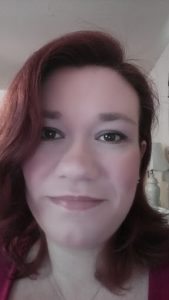
Ellie Hudson
When I was little I wanted to go to West Point. That dream actually lasted for a long time. I did research into what it would take to get in and made plans. Starting at the age of 8 until I was 18, I had jobs as a house cleaner, farm hand, waitress, bus girl, janitor, nanny, and tutor. I decided that I wanted to do something that would help people. When I declared my major in psychology and I started getting involved in practicums, internships, and extracurricular activities, I learned that I had a love for the autism community. I continued work as a tutor, as a civilian contractor for the Army at the Medical Research Institute for Chemical Defense, and worked as a 1:1 program aide doing behavior therapy with children with autism.
- What kind of work did you pursue after our days of you being the “Autism Whisperer” at Meredith College?
My first “grown-up” job out of college was as a behavioral therapist at a school for kids with autism. It was hard work, because the kids that I worked with were severe and profound on the spectrum. My job entailed working with an assigned caseload of kids ages 6-16, developing behavior plans for everyone who worked with the kids, including teachers, speech therapists, and parents, etc. Some kids needed frequent movement breaks. Some kids needed to be rewarded frequently for not engaging in targeted behaviors (aggression, self-injury, disruption). Some kids had their routine down and their behaviors under control, but they needed a heavily structured environment to make sure things stayed that way. Some kids spat all over me. Some kids chewed my arms until they looked like ground beef. Some kids dislocated my wrist. However it was incredibly rewarding work, and I loved every second. Some kids hugged me when they saw me. Some kids would be on their best behavior if they knew I was watching because they wanted me to come in with praise them for a good job. Some kids’ mothers cried when I had to leave, and gave me cards that I still keep.
- That’s incredible. That work takes a special kind of person. What do you “do” now and why have you chosen that?
My current “day job” is being a stay at home mom to a 9 year old and a 1 year old, both boys. When I was asked to be a part of this project, I said maybe the me of 10 years ago would have been good for this, but I don’t think anyone thinks of a stay at home mom as anything inspiring. My mother was a stay at home mom, and I can remember when Hillary Clinton took to the stage at the Inauguration Ball after Bill Clinton’s first time being elected. “I’m NOT the type of mom that stays at home and bakes cookies,” Hillary stated glibly. My mother clenched her jaw. “Neither am I,” she growled. I learned that other women — other moms even — tend to look down upon the stay at home mom. We sit on our butts and make cookies and don’t do anything of value, if you want to stereotype. We’re lazy because we don’t generate a paycheck.
I’m playing the long game of trying to raise two boys into respectful, helpful, independent, loving men. Time will tell if I succeed. I suck at baking cookies. My oldest boy knows some sign language, some German, and was the only child in his kindergarten that could read and write. I’m starting sign language with the baby. This is how I roll. The fact that I feel compelled to justify my efforts as a mother speaks to the pressure that the overall stereotype of the stay at home mom carries. I was reassured that this project was a place where all women’s work mattered, and convinced to be a voice in it.
- This series is a place where all women’s work matters. I’m so truly honored and humbled you trusted me to share your story. Well, now you ARE staying at home with those two boys and, I’ve no doubt, you’re an expert in many things, as a result. What is it like?

Ellie & Kids Collage
Being a mom is like having 50 part time jobs all at once, being paid nothing for any of them, and not being able to actually use any of these experiences on a resume. Being able to be a stay at home mom is a luxury that I do not take for granted, but it is also pretty much a career killer (or at the very least, career paralyzer). I’ve looked for work in the years since having my first child and the absence between my last job and the current year is what a lot of the interviewers focused on, if I made it that far.
I will write exactly what I would if I could on a resume. I have been a nurse, a teacher, a life coach, an exterminator, a spiritual advisor, a restaurant owner, a taxi driver, a maid, a librarian, a fashion consultant, an expert on whatever random thing is being obsessed over this month (astronomy, paleontology, history, architecture, geology, meteorology, world cultures, vehicles, biology, local plants and wildlife, video games, movies, books, etc.), an engineer, a ninja, an artist, a mythical creature, a police officer, a counselor, a musician, a copy-editor, a plumber, a carpenter, a CEO of a start-up investment firm, a hazmat cleaner, and a professional entertainer every single day. When they get older I will have to include job coaching, couples therapy, parenting advisor, mechanic, tax advisor, banker, lawyer, and a billion other things that could be possible.
It is one of the most versatile, challenging, and dynamic roles a human can take on, and it is not acknowledged to be anything professional because there is no training for it. Honestly, that’s kind of what makes it badass. THERE IS NO TRAINING. You have the kid and all these things are expected of you to just know and do. Boom. There is no professional advancement, but every incentive in the world to perform at your maximum ability. For a stay at home mom, there are long hours, lots of over-time, and no sick days. The rewards are small and fleeting; you have to grab them and savor them when they happen (my 1 year old has recently learned how to “kiss” by kind of eating the side of your face and it’s awesome). You also learn a lot about yourself when you’re looking down on essentially “you” in miniature form. I have this horrible habit of having to hold something in one hand while I do tasks with the other that really would be more efficiently executed with two hands (BOTH boys do this).
- Wow. I’m not going to lie. That just made me cry. I wish we lived closer so I could witness those things. You’re definitely an expert in so many things! With all of that going on, how do you keep learning?
The best sources for learning are to never stop learning. Anything you can use, you do. Surf the internet, watch the news, watch documentaries, go to the library, listen to the radio, listen to lectures, talk to family and friends, and read cereal boxes. Challenge yourself. 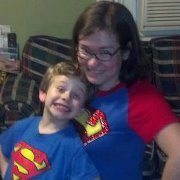
My 9 year old is very bright. He actually skipped the third grade and is in the fourth grade. He has been told he is smart by all of his teachers, and lots of things come easily to him. However, I have to tell him sometimes that he is not smart. Very often he gives up. If it doesn’t come easily or naturally to him, he quits. I tell him, being smart doesn’t mean knowing everything. It means knowing you don’t know everything, and continuing to learn as you grow. A smart person never stops learning.
- Let’s call this a two part question. We went to a women’s college so these sorts of notions were often part of our daily dialogue, but based upon your personal experience, what are some: a) Barriers you’ve observed for women?
At my last job, I was let go for being pregnant. That sucked. I started working there before I was pregnant and showed that I was capable of doing the work of 2-3 people. Once I announced I was pregnant, they kind of expected that energy level and ability to continue. They were all too happy to send a pregnant woman out into the community with 5 adult individuals with special needs, 2 of whom were in wheelchairs and not capable of propelling themselves. It was ridiculous and definitely not in the best interest of the individuals. I ended up hurting myself by lifting too much, so I got a note from my OBGYN to protect me and make sure they knew 20lbs was my limit. I was a bit annoyed and concerned, because I had had 3 miscarriages before this, and I already had had bleeding issues at the 9 weeks mark with this pregnancy, which they were aware of. The second I handed that note to my boss, she looked at me and said they could no longer accommodate me.
Now that it was in writing, corporate would not allow me to stay because I could not meet the basic job requirements. It did not matter that it was a temporary medical condition. I knew for a fact that they had another woman there on light duty, but not whether or not she had paperwork from her doctor. I think there may have had an unspoken understanding because she was with the company for so long and she had been treated for cancer. There was a “club” of people there, and from the start I did not fit in. The boss was the mother-in-law of an employee, who was best friends with the girlfriend of the junior boss, and none of them could do anything wrong because they all had each other’s backs. They had some pretty shady practices so I do not miss being a part of that company. I do feel bad about having to leave the individuals the way I did. The boss was very clearly trying to get me out the door as fast as possible, so I did not even get to say goodbye.
b) That’s a horrible barrier. Advantages for women?
Working in the mental health field itself. I have been very lucky to spend a large portion of my adult working life in places that did not treat men and women unequally. I’ve had female bosses, supervisors, and so on up the chain of command. I’ve never felt like my gender would determine my job advancement, and always felt that my education, work ethic, and experience were what my superiors looked at. I’ve been pregnant and working before, and accommodations were made to make sure I was kept safe for the pregnancy. I saw two nursing mothers able to make time for pumping and were given private, sanitary, comfortable places to do so. They were treated like being a nursing mother was just as important as being an employee. However, the places I worked were also predominately populated by women. I can’t really speak to what it is like working in a male dominated job.
- What is your passion and why is it important to you?
I am passionate about a lot of things. I am passionate about vaccinations for everyone. I think it is exciting that there is a vaccine available that can prevent a form of cancer, with the HPV vaccine, and you can bet my boys will be getting it once they are of age. I am proud to tell people that vaccines do not cause autism, and please don’t treat your child with autism with chelation therapy because the vaccine is not responsible.
I love cooking. I want my boys to know how to cook balanced meals for themselves before leaving home because so many people don’t know how. I am angered by the fact that it is cheaper to buy junk than it is to buy fresh foods.
I am passionate about mental health and ethical behavior by the professionals in that field. I am passionate about opening dialogues about personal struggles with mental health.
- I know, with two busy boys you don’t get a lot of it, but what do you devote your free time to?
I cross stitch and play the ukulele. I taught myself how to play the ukulele, because I needed something that I could physically do that would force me to express joy. I had a series of miscarriages in my journey to have my second child, and that was a pretty dark time for me. The ukulele is really not a “sad” instrument. I know “sad” songs, but playing them on a bright yellow uke with a smiley face painted on it just makes them whimsical. I just needed to feel accomplished in something at that time, and I loved it so much that I kept at it. I have three ukuleles now, and I recently acquired a mandolin. That one is going to be a little more challenging than I anticipated. I may need something besides YouTube to help me get started on it!
- What causes and organizations are you most passionate about?
Girl Scouts! They are the best. I learned so much about so many things from my troops. I learned about outdoor survival, community service, how to change my own oil and flat tires, how to be a leader or a follower, and songs that I sing to my children. Heifer International is something I make a point to donate to every Christmas.
- Who do you look up to?
I admire Carrie Fisher for speaking as candidly and humorously about mental illness as she did. I started reading her own words 15 years ago and I felt a little less alone in the world.
- I know you’ve been through a lot. What are some of the biggest challenges you have faced?
Personally? Surviving my divorce. Surviving the miscarriages. Surviving. There were some days where things got so bad, all I could think of was quitting. I tried to kill myself before I made the decision to get a divorce. I thought it would be better for my child to grow up without me than to grow up in a “broken home.” I had to look at my older son, who was 15 months old, then as I signed myself into a mental hospital to get better. He visited me while I was there, and while I know he won’t remember it, it’s still pretty humbling at times. While I am a better mother now, I feel guilty that I had to be so selfish in thinking ending my own life would somehow be good for him. When I remarried, and we made the decision to add to our family, I began losing the pregnancies. I had completely given up hope for having another child by the time I got pregnant with my youngest. Every night of the pregnancy, I had nightmares of losing a baby. Even now, holding him and feeling happy, I feel guilty that I had to lose so much to get to where I am.
Professionally, I miss doing what I used to do. I can’t just step back into that role. Either I’m going to have to get more education, which I don’t really have the money for, or I’m going to have to find a new professional dream that doesn’t involve paying for more education. That is a tough pill to swallow at the moment.
- Out of everything you’ve experienced, is there some advice that sticks with you?
Best advice? Warm up milk before you put it in the potatoes when making mashed potatoes. Seriously. It makes them creamier and just all around better. That, and, “The only thing you have to do in life is breathe.” I actually gave that advice to a dear friend, and several years later when I was mucking through my divorce she gave it back to me and blew me away.
Worst advice? Everything happens for a reason. Nope. People really liked to tell me that during the miscarriages because it made it easier for them to just give me a saying and expect me to be ok. I will punch anyone in the face who tries to tell me this.
Now that is a really good story about a woman and the many ways we work!
Happy Mother’s Day, dear friend. Thank you for sharing.
Thanks for reading Ellie’s story. Share in the comments how it impacted you or share it on social media. Check out next week’s weekly post on Women & the Ways We Work. Missed the others? Take a look at my blog to read the others. Know someone you think should be featured? Can I help you or your organization with a storytelling project? Contact me and let’s chat.

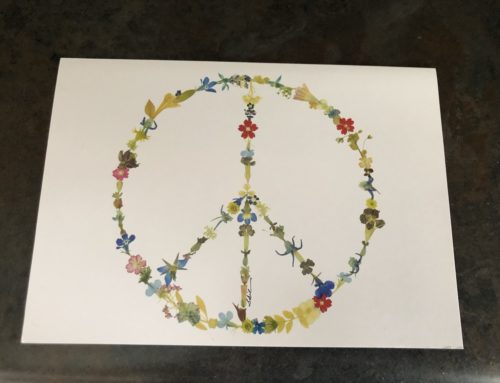
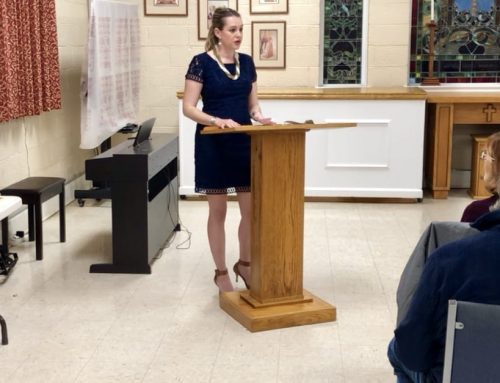
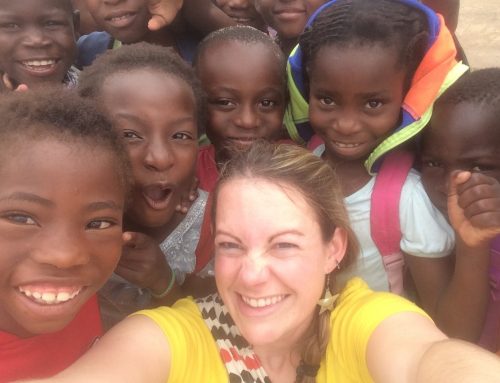
Leave A Comment
You must be logged in to post a comment.